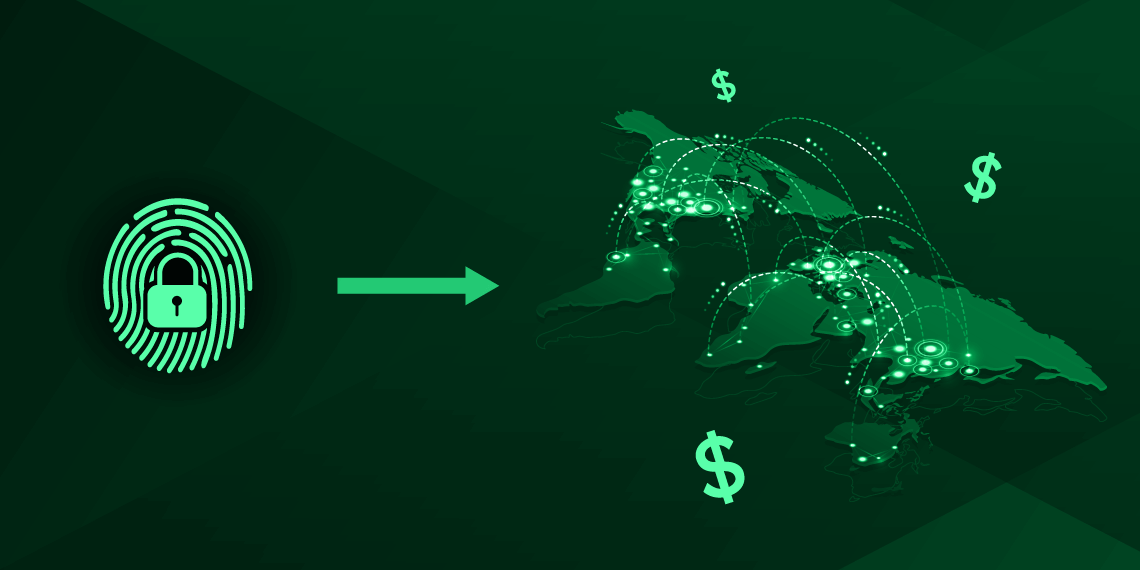Here we discuss the benefits of digital IDs and how they can help connect people to an increasingly digital world while preserving data privacy and control for the user.
With the rise of Web3 and a pivot from centralized platforms to open and user-focused decentralized ones, the concept of digital identities has taken center stage in the tech world. In the wake of numerous cases of large-scale online fraud and data leaks, many data privacy laws were developed, such as Europe’s General Data Protection Regulation (GDPR). This law became enforceable in 2018. Similarly, Google has announced the end of user-tracking cookies, which will be phased out by the end of 2024. In place of cookies, a number of experimental tracking features such as Federated Learning of Cohorts (FLoC) are on the rise. These technologies hope to solve the issues of centralization, user privacy, empowerment, and data ownership and control in an increasingly digital world.
As more and more individuals come online for tasks of all kinds – from opening bank accounts and accessing benefits to shopping and using medical services – operating in a digital environment without an effective and user-friendly identity service can become difficult, if not impossible.
Enter Digital IDs
This is where digital IDs come in. The benefits of an integrated digital ID service that works for users wherever they are and whatever they do online should not be ignored, since such a service can drive growth and inclusivity throughout the economy. According to a recent study from the World Bank, one billion people currently do not have any form of formal identification. Because of complex identification processes, high fees, restricted access to ID services, and a lack of user knowledge in the domain of personal identification, too many people cannot use the many systems that rely on traditional identification for access. However, these same people still need access to education and health services and other digital offerings that can help them grow, prosper, and gain financial independence.
According to Sandi Bitenc, CEO of 3air, an aspiring digital connectivity project that aims to bring millions across Africa online with a low-cost yet highly performant digital mesh network, “Getting into crypto and DeFi keeps getting easier. But to truly be empowered and enjoy legitimate recognition in education, banking, and employment, millions of users still lack proper identification. Digital Identities can solve this.”
The issues with traditional forms of identity have already been outlined above. They are too costly or cumbersome for many users, and many users lack the requisite training, education, or application resources to file for and obtain traditional IDs. In the online world, digital services use technologies such as cookies, usernames, passwords, and self-reported ID characteristics (such as date and place of birth or gender) to create profiles for users. Unfortunately, these approaches are prone to disparities and data entry errors and are dreadfully fragmented to the point that they often do not work across different services or platforms.
Universal digital IDs provide a workable solution to these issues while providing democratized access to these services, from financial products and healthcare to education, voting, online retail, and more.
For example, about 1.7 billion people around the world still do not have a bank account, yet many people can use mobile banking services where they are offered. Similar offerings are on the rise in other industries and verticals, using mobile connectivity to provide services where it was once too complex or costly to do so. Connectivity initiatives such as those being undertaken by 3air are laying the groundwork for these services to work effectively, and they can mean the difference between being included in the online economy and continuing to operate in a vacuum, disconnected from the wider global economy.
According to McKinsey, we can add 3-13% to GDP per country if we can solve the identity problem. This means the economic benefits of such a solution should not be overlooked. As long as we have the right guidelines in place that can protect personal data, preserve privacy, and uphold the civil rights of users, a framework of shared standards and practices can help bring not just millions but billions online and connected to digital services that can help lower costs, improve the standard of living, and open opportunities for personal growth, education, healthcare access, social connectivity, collaboration, discovery, and more.
Final Thoughts
In a digital world where many malicious actors try to surveil users using digital tracking tools, a safe, decentralized identity solution that connects individual users to a unique ID – an ID that the user controls and decides what information is shared and with whom – can be the value-added gamechanger the industry needs.
Companies such as 3air are working to ensure that internet access improves for all – even for those in the most remote parts of the world. As more and more people come online, having an effective digital ID solution in place will be critical to ensuring that these new users are no longer excluded from the internet-driven advantages and opportunities that they have the right to enjoy.
Without digital IDs, the vicious cycle of relying on traditional forms of ID will continue, perpetuating the issues and challenges that disconnected users face today. However, with the right digital ID solutions in place, users can do everything from creating personal digital wallets and storing their ID data and official documents in electronic formats to using a single login or ID across a constellation of services that all verify, accept, and provide access using that ID. This is the future that many players in the industry are working toward, and the positive changes they are committed to may slowly but surely become the norm.





